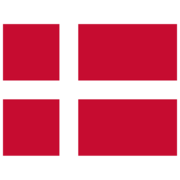Fiscal subject related
General information
Denmark is continuing its work to modernise business transactions through e-invoicing and digital bookkeeping. The Danish Business Authority is developing new standards and updates that will support automation, improve data quality, and prepare the country for future EU rules.
Updates to e-invoicing standards
Denmark is still working on a long-term strategy for national document standards. The planned OIOUBL 3.0 update has been delayed while authorities complete further analysis and cost assessments. The final strategy is now expected in early 2026.
In the meantime, a new Release Candidate for OIOUBL 2.1 was published on 14 October 2025. It includes optional fields for CO₂ and climate-related data, helping companies reduce manual reporting. A final version is expected by the end of October 2025.
The new version of SAF-T 2.0, the digital bookkeeping and audit data format, is also in its final review stage and should be published by the end of 2025.
E-Invoices in public sector transactions
Currently, businesses must send e-invoices when billing public authorities (B2G). A new recommendation proposes that public entities should also send e-invoices to businesses (G2B). This proposal is under review by the Economic Development Agency with support from the Business Authority.
Future requirements for digital bookkeeping systems
With the EU ViDA rules on digital reporting coming in July 2030, Denmark is considering new requirements for bookkeeping systems to increase automation and e-invoice usage. Proposals include:
- Reaching 70% e-invoicing adoption by 2027,
- Requiring companies to register in Nemhandelregisteret (NHR) but allowing opt-out,
- API integration with Nemhandel so e-invoice recipients are identified automatically.
These obligations would first apply to “Standard Digital Bookkeeping Systems,” but later also to “Specially Developed Systems.”
Denmark is moving steadily toward a fully digital, automated invoicing environment, ahead of many other EU countries. Businesses operating in Denmark should expect:
- More structured and standardised e-invoicing,
- Stronger digital bookkeeping requirement,
- Gradual alignment with EU-wide ViDA reporting rules.
Other news from Denmark
Denmark: OIOUBL 2.1 – Schematron version 1.17.0. 1.17.0. RC
 Denmark
Author: Ivana Picajkić
Denmark
Author: Ivana Picajkić
Denmark has released OIOUBL 2.1 Schematron v1.17.0 (Release Candidate), introducing stricter tax code consistency checks, enhanced Peppol VAT code alignment, and mandatory currency validation on amount fields. The final version is expected in mid-February 2026, with mandatory implementation by 15 May 2026, giving businesses additional time to test and adapt their invoicing systems. The Danish Busi... Read more



Denmark: Digital accounting obligations from 2026
 Denmark
Author: Ivana Picajkić
Denmark
Author: Ivana Picajkić
From 1 January 2026, Denmark’s Bookkeeping Act will require VAT-registered businesses with turnover above DKK 300,000—including foreign VAT-registered entities—to use compliant digital accounting systems instead of paper-based records. These systems must support structured e-invoicing (OIOUBL/Peppol BIS), digital archiving, and SAF-T generation, with non-compliance subject to supervision by the Da... Read more



Denmark Moves Forward With Digital Bookkeeping as OIOUBL 3.0 is Cancelled
 Denmark
Author: Ivana Picajkić
Denmark
Author: Ivana Picajkić
In 2026, Denmark completes the final rollout of its Digital Bookkeeping Act, extending mandatory electronic accounting and invoicing to around 118,000 additional businesses from 1 January 2026, with in-house systems granted a transition period until 1 July 2026. At the same time, the planned OIOUBL 3.0 e-invoice format has been formally cancelled, creating short-term technical uncertainty as autho... Read more



New document was uploaded: EV-chargers from the Fiscalization Perspective in Denmark
 Denmark
Author: Ivana Picajkić
Denmark
Author: Ivana Picajkić
The purpose of this document is to explain rules regarding the treatment of EV chargers for electric vehicles in Denmark in relation to fiscalization. The document will explain whether they are subjects of fiscalization or not, whether there are some special rules and regulations, or if there are some special rules. Read more
Subscribe to get access to the latest news, documents, webinars and educations.
Already subscriber? Login


Denmark Proposes Major Tax Reform: Chocolate and Coffee Taxes to Be Abolished
 Denmark
Author: Ivana Picajkić
Denmark
Author: Ivana Picajkić
Denmark has proposed a broad tax reform under the 2026 Finance Act that would abolish the chocolate, confectionery, and coffee taxes, introduce zero VAT on books, and simplify the tax system to reduce everyday costs and support social and economic priorities. Read more
Subscribe to get access to the latest news, documents, webinars and educations.
Already subscriber? Login


Denmark’s Economic Council Rejects Lower VAT on Groceries
 Denmark
Author: Ivana Picajkić
Denmark
Author: Ivana Picajkić
Denmark’s Economic Council advises against lowering VAT on food, citing high costs, management difficulties, and minimal benefits for needy households. They recommend direct financial support for low-income families and subsidies for healthy food instead, emphasizing the simplicity of Denmark’s current single VAT rate of 25%. Denmark’s top economic advisers have warned against lowering VAT o... Read more



Denmark Introduced New Coins Featuring the Current Monarch
 Denmark
Author: Ivana Picajkić
Denmark
Author: Ivana Picajkić
Denmark introduced redesigned coins on December 2, 2025, featuring King Frederik X through updated portraits and monograms, along with a new symbol inspired by the octagonal layout of Amalienborg Palace Square. The new designs apply to the 20-, 10-, 5-, 2-, and 1-krone coins, while all existing coins remain legal tender and continue to circulate. Danmarks Nationalbank introduced new Danish coins i... Read more


